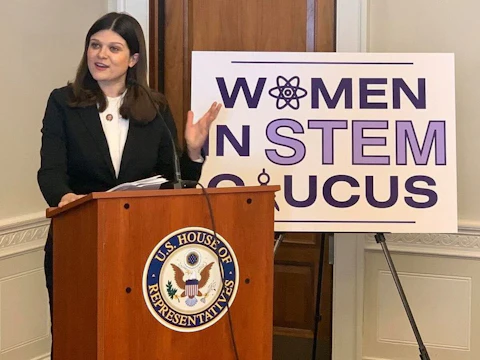While Senate Majority Leader Mitch McConnell (R-Ky.) holds up coronavirus relief, Michigan’s food banks are seeing dramatic rises in need.
DETROIT, Mich.—Each state struggles with food insecurity. But the coronavirus pandemic has made this problem so much worse, and Michiganders are feeling it.
Frank Kubik, director of food programs for Focus: Hope recounted to Eater the story of one family who were made food insecure by virtue of simply not having access to groceries safely.
“She was also taking care of her parents, one of whom had the virus as well,” says Kubik. “They needed food, so I took it over, and when I got there, her mother, who was 89, was standing on her front porch … She told me that her daughter wasn’t feeling well, and went to lay down after she had called us. She was worried about her, but was praying that she would get better. Her husband was 92 years old and was virus-free, but needed assistance from her daughter to get around.”
RELATED: Dr. Jill Biden Raises Awareness of Food Insecurity During Her West Michigan Visit
In nearby communities the story is the same. Maureen Pickelman of Mt. Clemens told The ‘Gander that a group like Focus: Hope was instrumental in keeping her and her roommate supplied with food as they recovered from the coronavirus, and in Ann Arbor Food Gatherers has seen a massive surge in need.
All told, over 600,000 Michiganders are experiencing hunger according to a report by the nonpartisan Center for Budget and Policy Priorities. And across the state, more than 250,000 adults report a child in their household is struggling with having enough to eat as well.
“These data underscore the urgent need for federal policymakers to agree on further robust relief measures,” the report said. “The measures enacted earlier this year—such as expanded unemployment benefits and stimulus payments—mitigated hardship but were temporary and had significant shortcomings. Without a new relief package, hardship likely will rise and grow more severe, endangering children’s long-term health and educational outcomes.”
Rather than passing that emergency aid, Senate Majority Leader Mitch McConnell (R-Ky.) has focused on rushing the confirmation of Judge Amy Coney Barrett to the Supreme Court before the Nov. 3 election, COURIER reports.
UP NEXT: A Michigan Farmer is Paying Homage to His Past by Rooting the Future
But even if that emergency aid comes, Michigan will still have issues of hunger to face. Feeding America has analysed the impact of the pandemic on Michiganders’ access to food, but even before the pandemic 15% of Michigan children were food insecure, which roughly matches the latest numbers.
That shows that while the pandemic has exacerbated the issue, the underlying problem of food security is one that needs to be addressed. In August, Gov. Gretchen Whitmer established a committee to look into the causes of lasting food insecurity and come up with ways to address them, both during and after the pandemic.
“COVID-19 has magnified the effects and challenges of food insecurity and increased the number of Michigan residents who struggle with the toxic stress of being food insecure,” said Phil Knight, chair of the new Food Security Council. “This is a non-partisan challenge, and while multi-layered, it is solvable for the second most diverse agricultural state in the US.”
SEE ALSO: Michigan Looks to Overturn Ban on Food Assistance for Returning Citizens
According to a 2006 study, there are six major factors that contribute to food insecurity. Those factors are low average wages, high cost of rental housing, high unemployment rate, high rate of residential instability, low participation in the SNAP, and high tax burden on low-income households.
Food Access in Michigan found that prior to the pandemic, renters made on average about $13 an hour; To afford an average rental unit requires $16 an hour.
Those are some of the challenges the Food Security Council will tackle when trying to help the now 600,000 hungry Michiganders.
“Creating food security is the first step towards self-sufficiency, and while it starts in the field, it is sustained in the workplace,” said Knight. “Our hungry neighbors are worthy of our investment in them as we seek to fulfill the directives given to the council.”





